It’s an industry that generates more than CAD $500 billion in sales every year.
It produces everything from premium luxury cosmetics to price-conscious moisturizers. There are countless products, ever-changing trends, stunning marketing campaigns – and one particular family-centred company that embraces it all, vowing every day to celebrate beauty instead of standardizing it.
It’s the Lauder family. And it has built a beauty empire through 75 years (and three generations) of successful family ownership.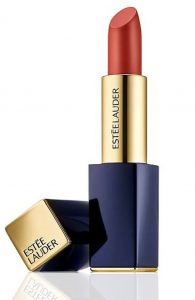
- Today, the Lauders are worth $40 billion, one of the wealthiest families in the world.
- It controls a truly iconic brand through its Estée Lauder Companies Inc. (ELC). The company has renowned brands such as Aveda, Bobbi Brown, Clinique, M-A-C and many others.
- It’s a $89 billion international enterprise, with more than $14 billion in annual sales in over 150 countries.
Between its founding namesake brand, Estée Lauder, and a diverse portfolio of subsidiaries and acquisitions, ELC is widely considered the global leader in prestige beauty.
And it may surprise you to learn that it all started on the stovetop of a tiny apartment in Queens, New York.
Estée Lauder was the daughter of Jewish immigrants from Eastern Europe. Her family lived above a tiny hardware store operated by her father in New York City. For Estée, beauty was a family affair from the very beginning. Her uncle was a chemist, and young Estée spent hours watching him experiment on the gas stove in the family kitchen. Armed with her uncle’s scientific formulas and secret ingredients, she began to create her own beauty products. She sold them out of her purse wherever and whenever she could.
This was the late 1920s. By 1933, Estée and her husband, Joseph, had their first son, Leonard. They chose that same year to formally establish what would later grow to become The Estée Lauder Companies. With Estée and Joseph at the helm and Leonard soon pitching in after school and on weekends, the Lauders built their family business – one jar of homemade cream at a time. Back then, it was a classic mom-and-pop operation. By 1965, Estée Lauder had become the fastest growing beauty company in the United States. And today it remains a powerhouse.
For the Lauder family, success has always hinged on dual goals:
1. To always keep its business relevant in the fast-paced beauty industry.
2. And to always stay connected to their roots as a family-controlled enterprise.
That’s a perpetual balancing act. As Leonard Lauder has said several times, “There are two things that can destroy a family business: the family and the business, and they both have to be kept in order. The business part is straightforward; the family aspect less so.”
The question then becomes: how has the Lauder family managed to pull it off?
First, a brief history.
Family roles and rules
Estée Lauder always wanted the company she was building to be a foundation for her family. She believed that “family” was a powerful, unmatchable asset in business, and her intention was always for the company to remain family-controlled. She was successful. Today, the Lauder family remains actively involved in the leadership of ELC, though family member roles look a lot different than they once did. In the beginning, Estée, Joseph, and young Leonard measured success in individual jars. Now the Lauder empire has offices worldwide, along with numerous subsidiaries. Estée and Joseph have passed on, and the next generations have stepped up to the helm. There are currently six Lauder family members actively engaged in the company.
A few notes, in particular:
- Leonard has held numerous roles over the years. Born the same year as the business, he grew up right alongside it and joined the company as a billing clerk at age 15. Later, he became President and CEO. During that time, Leonard dramatically expanded the company. Today, he is Chairman Emeritus and CTO (Chief-Teaching Officer), leading company seminars and education programs. He also serves on the of Board of Directors.
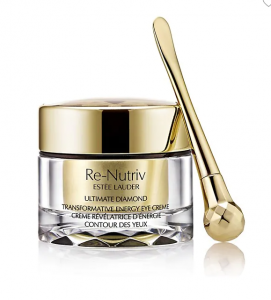
- Evelyn Lauder joined both the family and the business with her marriage to Leonard in 1959. She was a senior executive during her 50-plus years with the company until she passed away in 2011.
- Ronald, the son of Estée and Joseph, first joined the business at the Belgian production factory in 1964. He has held various executive roles since and is currently Chairman of Clinique Laboratories (the first Estée Lauder subsidiary) and an Executive Officer of ELC. He represents the second generation of the family in the business.
- The third generation has been involved in ELC for more than 30 years. Three of Estée’s grandchildren each hold senior leadership roles at ELC. William Lauder is Executive Chairman and Chairman of the Board of Directors. Aerin Lauder is the Founder and Creative Director of luxury lifestyle brand AERIN, her eponymous brand within the ELC portfolio. And Jane Lauder is Executive Vice President of Enterprise Marketing, as well as Chief Data Officer for the company.
- And now members of the Lauders’ fourth generation are in the early stages of carving out a place for themselves in the family business too. Danielle Lauder (great granddaughter of Estée) has debuted a luxury makeup collection called ACT IV, recently added to the Estée Lauder brand. Way back when Leonard joined the company in an official capacity, his father Joseph told The New York Times, “We are more than a family business now. We are a family in business.”
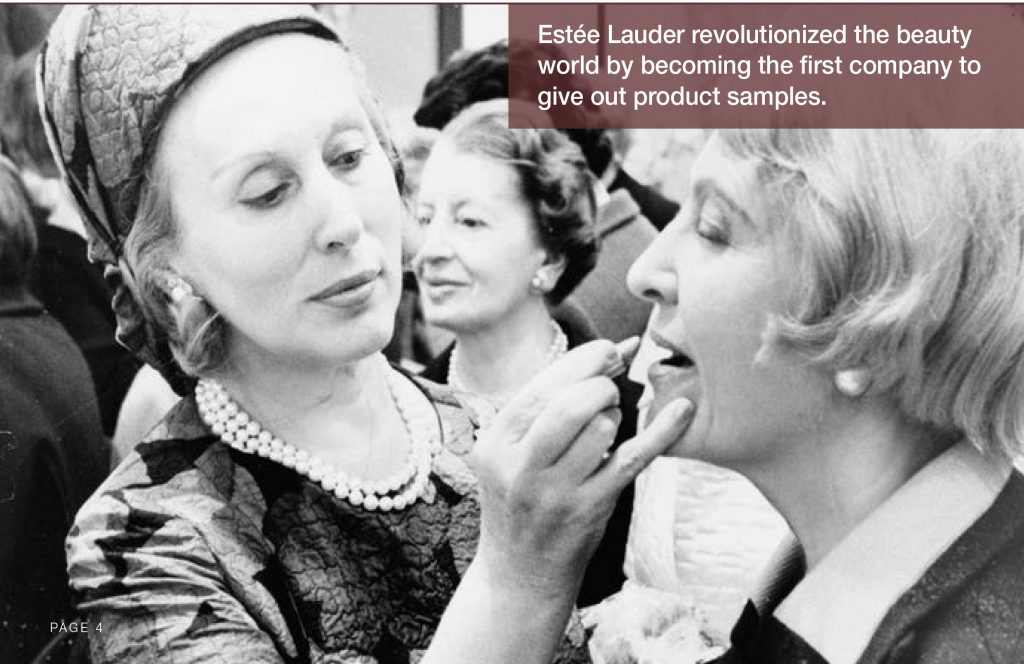
The Lauders have since taken this to be their mantra. For them, there are important distinctions between a family business and a “family in business”:
- Direct involvement. Lauder family members are hands-on at the company every single day. They roll up their sleeves, work hard, care about their work, and each strive to earn their own stripes. Their direct involvement in the company is a defining characteristic compared to Estée Lauder’s competitors.
- Accountability. There’s an ingrained sense of responsibility, not just to the family whose name is on the door, but to everyone involved with the company – employees, customers, suppliers, and shareholders. They take this responsibility seriously.
Navigating four generations of family working together takes skill. And it also hasn’t come without challenges. How does the business grow and stay ahead of trends? How does the family remain connected and harmonious? How does the business (and the family) transition successfully?
Let’s explore.
FIVE KEY INGREDIENTS TO REMAINING A ‘FAMILY IN BUSINESS’
1. Employment isn’t a birthright.
Before earning a role in the business, every family member must first gain a level of experience and competence outside the company. The family feels it helps to lose any sense of entitlement they might have. It also gains them:
- Confidence in their ability to lead and proof of that ability from an outside authority.
- The experience of being successful in their own right.
- A broader perspective about running businesses.
2. Playing to their strengths, with the long game in mind.
Every Lauder involved in company leadership plays a very different role in the business. There’s no overlap. Each person pursues opportunities where their talents contribute the most. Having their own lanes means each has the chance to lead, work independently, and earn those distinguishing stripes for themselves. As the Lauders say, “everyone needs their own sunshine.”
While they focus on individual areas of expertise day-to-day, the Lauders are united in their commitment to long-term vision. Just like Estée, they know they are first and foremost building a foundation. They share a strong sense of stewardship and a dedication to leaving a positive mark on their ongoing family legacy. Together, they continue to build the future of Estée Lauder.
3. Preventative measures learned from the past.
Anytime there’s a sale or breakup of a long-term family business in any industry, the Lauder family observes carefully. They’ve always been cautious of the shirtsleeves-to-shirtsleeves three generation adage – “the first generation builds it, the second enjoys it, the third destroys it.” They also take heed of the bitter family feuds that have torn apart other families in their industry – the Revsons (Revlon) and Bettencourts (L’Oreal) are two examples. The Lauders are adamant that the same won’t happen to them. To ensure it, they’ve implemented certain preventive measures:
- They vow to keep their disagreements private and tackle any contentious topics behind closed doors.
- The family is careful to keep their business roles separate from one another whenever possible. For instance, when William joined the company, he never reported directly to his father, Leonard.
- They never let a ‘family problem’ gain traction before meeting it head on and fixing it. The family knows that friction created today might not show its full consequences for years to come.
The decision to take the company public was an additional preventative measure for the Lauders. The family had contemplated the idea for years, but the timing was never right. When it came time for Estée to retire, the family faced a new set of challenges. Going public would reduce significant tax burdens and prevent an unwanted reallocation of the stock divided between the family members. Leonard, as Chairman and CEO at the time, would finally be relieved of his unofficial third role as gatekeeper of the “family bank.” Going public would take money issues out of the family equation, while also reducing the risk of future division, bitterness, and resentment. The timing was finally right.
In November 1995, The Estée Lauder Companies launched its initial public offering. Today, the Lauder family owns 38% of the total common stock and approximately 86% of the voting power.
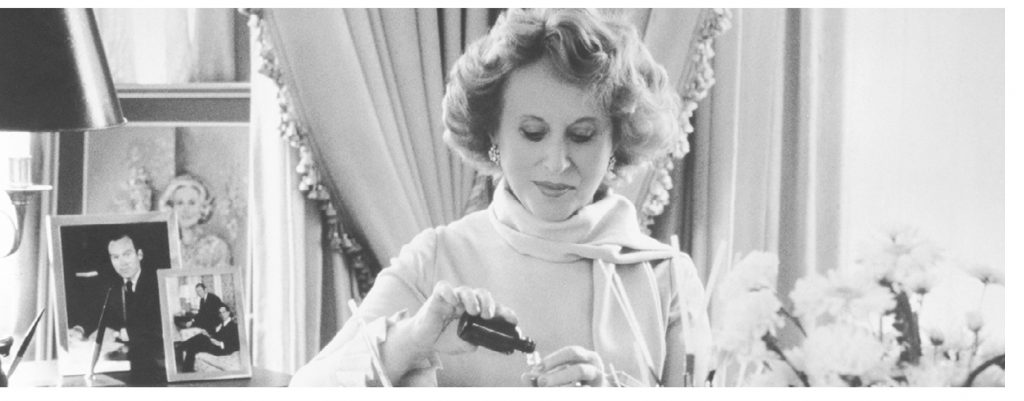
4. The benefits of professional management and external advisors.
It’s a vow Leonard made to himself and the company early on as the business grew. Building the family empire didn’t happen by doing everything themselves. From expert tax strategists to innovative family business advisors to brilliant sales and marketing staff, the Lauder family takes pride in hiring and nurturing great people from the outside. But it hasn’t always been easy.
The family had closely-held the company reins for its entire existence. By the mid-2000s, though, ELC was underperforming. It had plateaued. William was CEO but found himself in a stifled position, encountering resistance from many shareholders who shared his last name. Some family members began to believe that the perspective of an outsider was the tonic they needed. Others were wary of an outsider intruding on the family empire.
The decision was ultimately made to hire Fabrizio Freda as President & CEO in 2008. It didn’t take long for any doubts to dissolve. The company underwent a refreshing makeover. Sales soared and profits more than doubled. ELC’s market capitalization has grown from $5 billion in 2009 to north of $100 billion today.
Much of this success has been due to Freda’s leadership. He shares a unique and effective partnership with William, who now serves as Chairman and ELC’s secret weapon in closing deals. Freda’s strengths are in day-today management, prioritizing resources, and integration of company brands.
5. A patient approach to capital.
The company is publicly traded, but it is still very much family-controlled — and the family makes sure that ELC stays committed to the long term. The philosophy of ‘patient capital’ has become a hallmark of many families in business. For the Lauders, this means sticking with the strategy, even if it takes a bit of time to bear fruit.
This mentality is at the very root of Estée Lauder’s origins. That long-term orientation and big picture thinking is the perfect merger of the family’s dual two goals: it allows them to innovate and stay relevant while honouring their heritage and the business remaining family-controlled. They’ve committed to integrity and building their brands to last — not over days or even years, but decades.
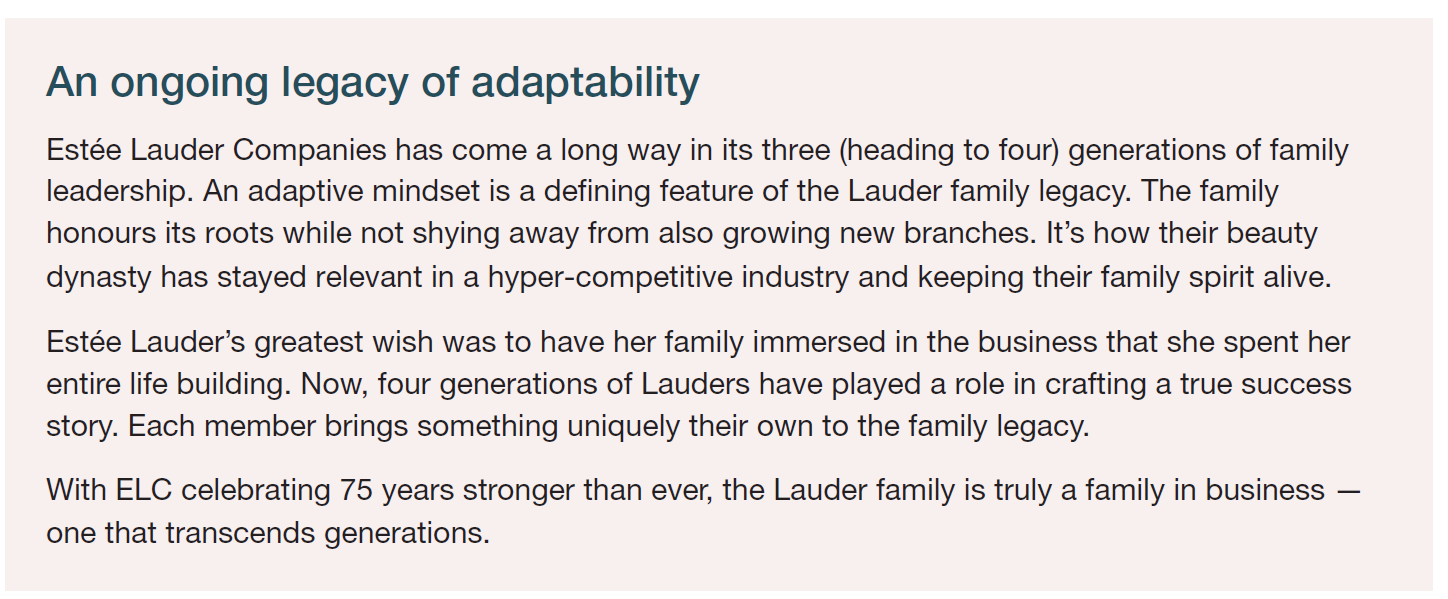
Questions for you to consider:
1. What has defined your own success as a ‘family in business?’
2. How patient is your approach to capital?
3. What do you admire most about the Lauder family?
Jessika McQueen is a Toronto-based freelance writer.
